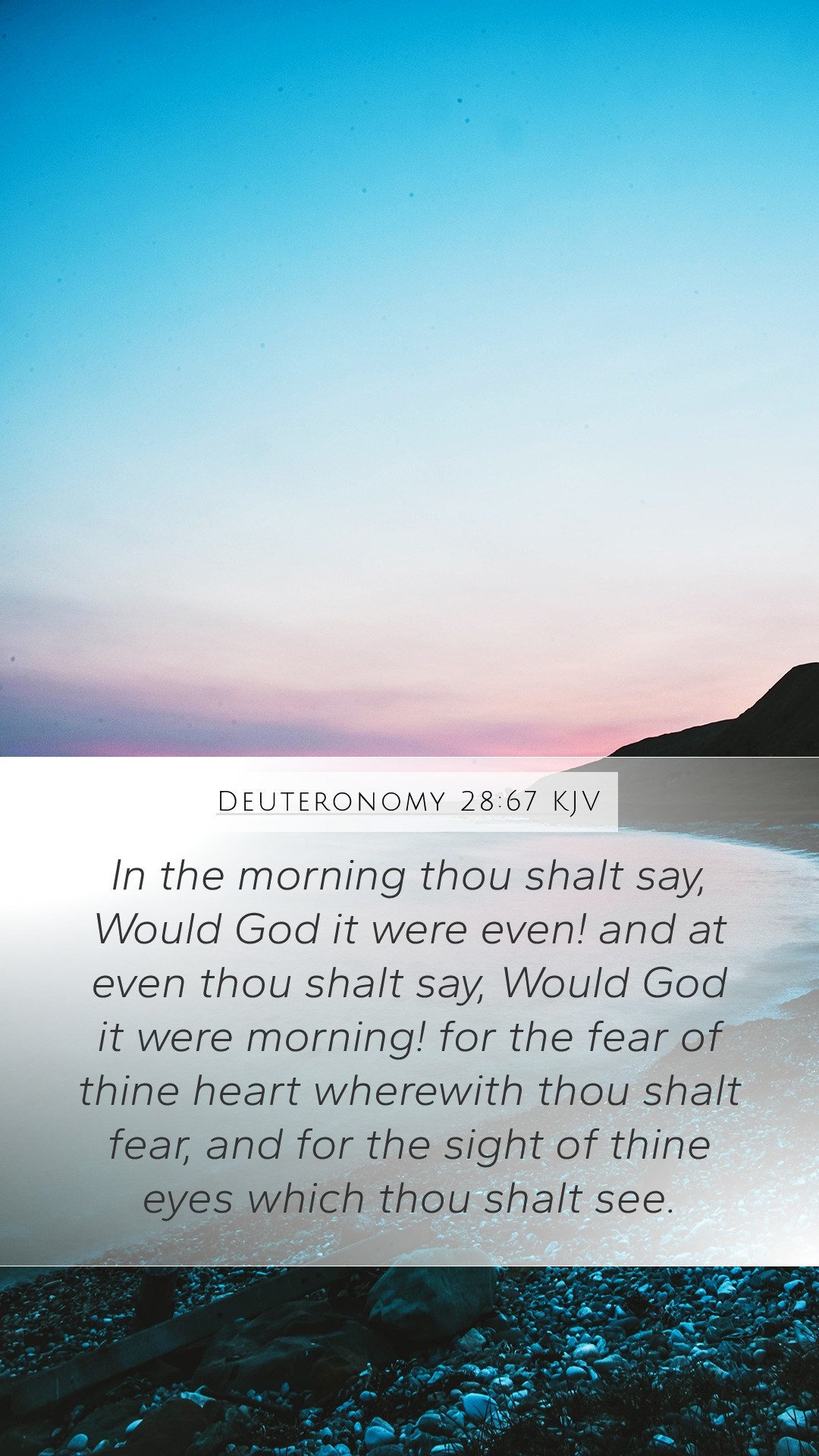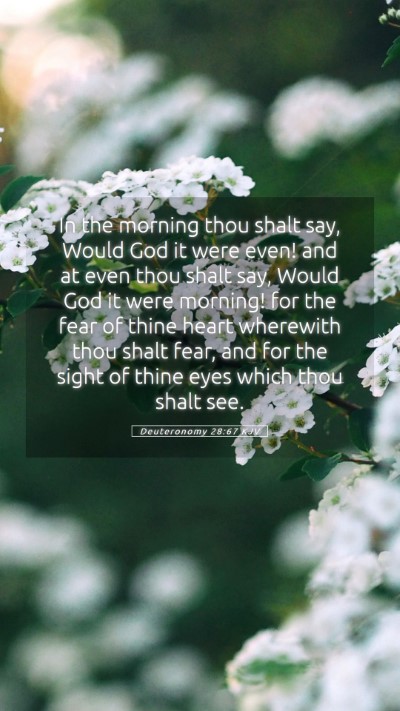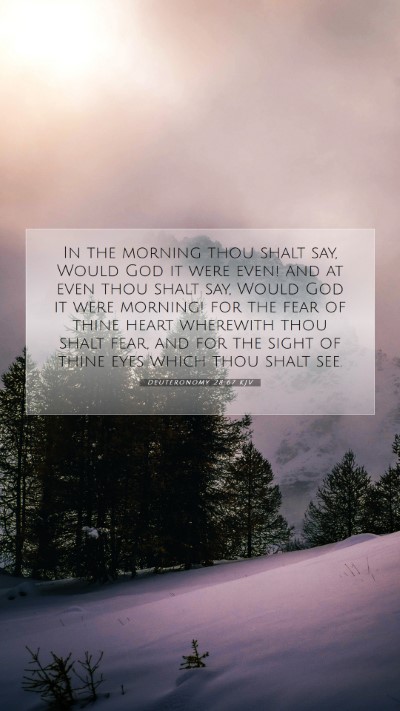Bible Verse Meaning: Deuteronomy 28:67
Verse: "In the morning you shall say, 'Would that it were evening!' and at evening you shall say, 'Would that it were morning!' because of the terror that your heart shall feel and the sights that your eyes shall see."
Overview
The verse in question depicts the profound distress and despair that will be experienced by the people due to disobedience to God's commands. This passage is a part of a series of warnings outlined in Deuteronomy regarding the consequences of turning away from God. Through the insights of notable public domain commentaries, we can delve deeper into the meanings and implications of this scripture.
Meaning and Interpretation
Deuteronomy 28:67 presents a vivid contrast between the joy of the morning and the anguish of the evening, encapsulating the cyclic nature of despair that can stem from unrepentant sin. Matthew Henry describes this as a reflection of the profound emotional turmoil that can accompany God’s judgment, where one longs for the comfort of a new day but is instead met with fear and dread. This commentary highlights the psychological impact of straying from divine commandments.
-
Matthew Henry:
Henry emphasizes the futility that feels inherent in such despair. The longing for evening in the morning signifies a deeper issue—a heart troubled by the repercussions of unrighteousness, leading to a reality where the light of day is overshadowed by fear.
-
Albert Barnes:
Barnes notes that the repeated lamentation of wishing for a different time signifies the immense suffering experienced, hinting at the general unrest and fear that overtakes the individuals as a result of their actions. He stresses the idea that such feelings arise from not just external circumstances but a deeply ingrained fear stemming from rejection of divine guidance.
-
Adam Clarke:
Clarke interprets this verse through the lens of historical context, suggesting that this warning serves to remind the Israelites of the importance of faithfulness to God’s covenant. The terrifying observations of their eyes are emblematic of the consequences of turning away from God, reminding readers of the weight of their personal accountability.
Thematic Elements
This passage carries significant thematic elements that resonate throughout biblical literature. The concepts of obedience, consequence, and the emotional struggles associated with faithfulness are recurrent motifs not only in Deuteronomy but throughout the scriptures.
1. Obedience and Consequence
The dire situation outlined in this verse is attributed to the failure of the people to remain obedient to God’s laws. The broader context of Deuteronomy 28 outlines the blessings of obedience versus the curses of disobedience, starkly reinforcing a principle central to biblical teaching.
2. Emotional Turmoil
The emotional state described—longing for the evening in the morning and backwards—illustrates a condition that affects not merely the actions of individuals but their mental well-being. Such turmoil is often discussed in biblical commentary as a result of straying from God’s path.
Application in Daily Life
Understanding the implications of Deuteronomy 28:67 invites modern readers to reflect on their own lives. Are there areas where fear and turmoil plague your heart due to a lack of trust or obedience to God? This scripture serves as both a warning and an invitation for introspection and alignment with God’s will.
Cross References
- Deuteronomy 28:15: Outlines the curses that will come upon those who do not obey God’s commands.
- (Jeremiah 4:19-20): Expresses similar sentiments of anguish over the consequences of national sin.
- (Isaiah 33:14): Discusses the terror of the wicked, a thematic connection to fear in the face of judgment.
Conclusion
Through an in-depth biblical exegesis of Deuteronomy 28:67, we uncover a poignant message regarding the peril of disobedience and the deep emotional consequences that follow. Commentaries by Matthew Henry, Albert Barnes, and Adam Clarke illuminate the significance of this verse, allowing for a greater understanding of scripture and its implications on daily life.
This exploration provides valuable insights for Bible study groups, individuals engaging in online Bible study, or anyone seeking bible study tools and bible study resources to deepen their knowledge of Scripture.


